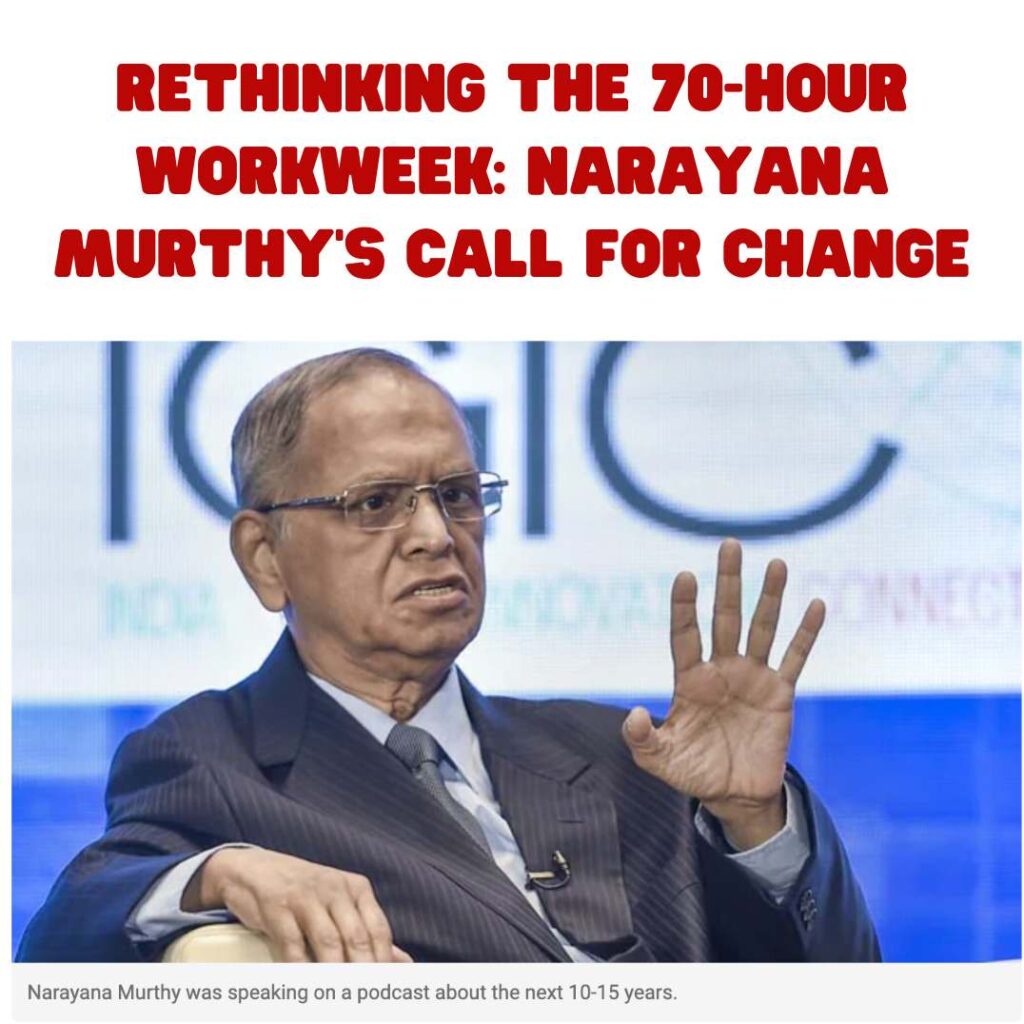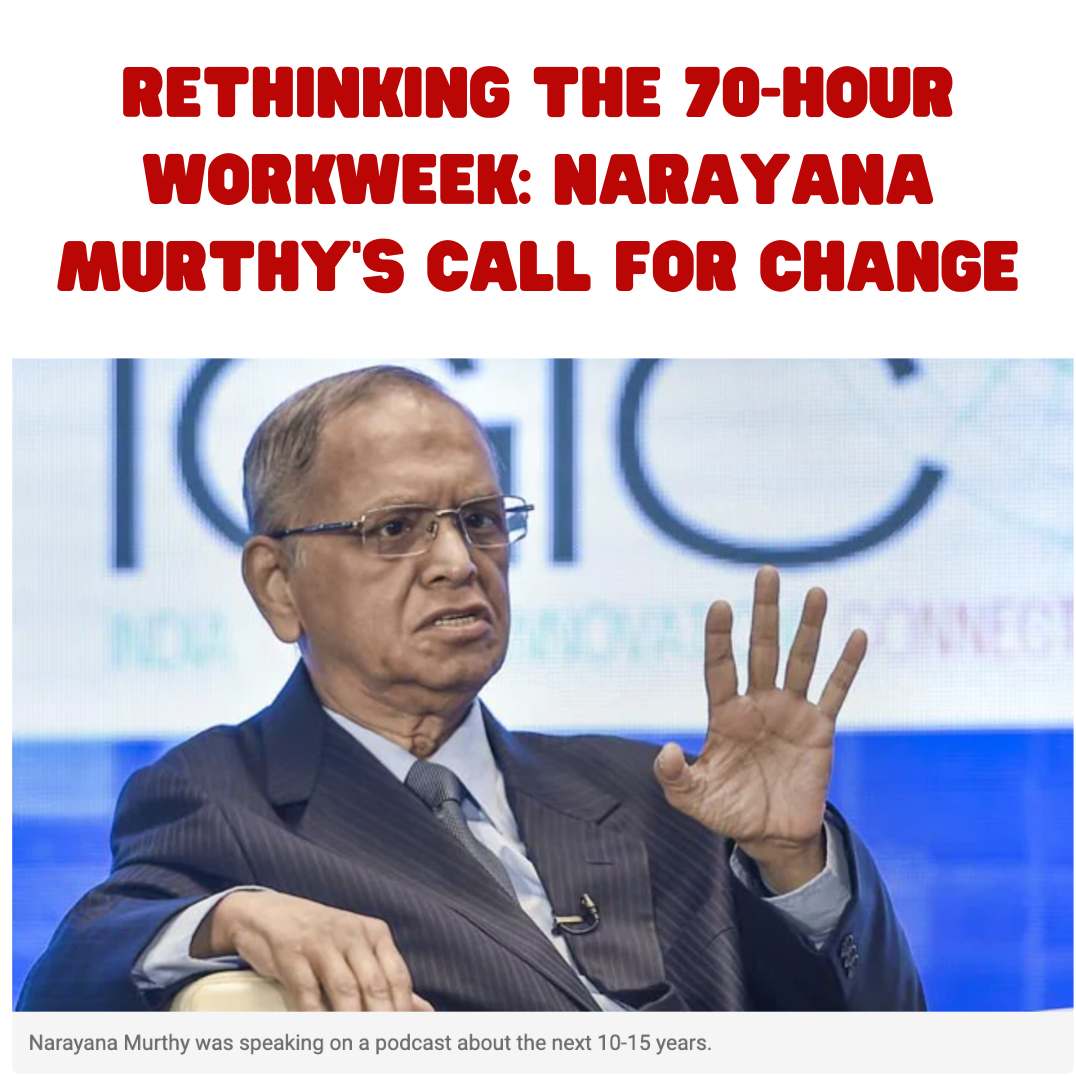Narayana Murthy, the visionary founder of Infosys, has sparked a compelling dialogue in India by advocating for a transformation in the country’s work culture. In a recent statement, Murthy emphasized the need for India to enhance its work productivity, proposing a 70-hour workweek as the solution. He highlighted that India’s work productivity currently lags among the lowest globally, undermining its competitiveness on the world stage, especially in comparison to industrial giants like China.
Murthy’s proposition has stirred diverse opinions and prompted contemplation. While the idea of longer working hours theoretically promises increased output, it’s crucial to scrutinize this proposal from various angles, considering the intricacies of contemporary life, the delicate work-life balance, and overall productivity.
“Productivity is not measured by the quantity of hours worked, but by the quality of tasks accomplished. Smart work surpasses long hours.”
The Soulful Page
The Case for Longer Hours
Narayana Murthy’s argument hinges on the belief that India’s young and dynamic workforce must commit more hours to work to effectively compete with nations like China. The concept is straightforward: additional work hours should yield greater productivity, translating into enhanced global competitiveness.
Differing Perspectives
While some may find resonance with Murthy’s vision, valid concerns persist. Chief among these is the question of work-life balance. As the world grapples with burnout, mental health challenges, and a growing realization of the value of personal time, advocating for a 70-hour workweek appears counterintuitive. Quality of life and overall well-being may be compromised in the relentless pursuit of productivity.
Working Smart vs. Working Hard

The timeless adage “work smarter, not harder” comes to mind. Rather than merely extending work hours, can we not emphasize optimizing productivity during the conventional 40-hour workweek? Modern workplace practices, such as remote work and flexible hours, have demonstrated that productivity can be achieved without tethering employees to their desks for extended durations.
The Human Factor
Moreover, it’s imperative to acknowledge that individuals are not machines. Productivity and creativity often flourish when people have the opportunity to relax, unwind, and spend time with loved ones. It’s these human moments that frequently lead to innovative thinking and effective problem-solving.
In conclusion, Narayana Murthy’s call for a 70-hour workweek is a thought-provoking proposal that raises fundamental questions about India’s work culture, competitiveness, and the intricate equilibrium between productivity and personal well-being. While longer work hours may have a role to play, it’s equally essential to explore alternatives that empower individuals to excel both professionally and personally. As we navigate this discourse, let’s remember that achieving excellence doesn’t always require sacrificing our time for ourselves and our loved ones.



















What do you think?
It is nice to know your opinion. Leave a comment.